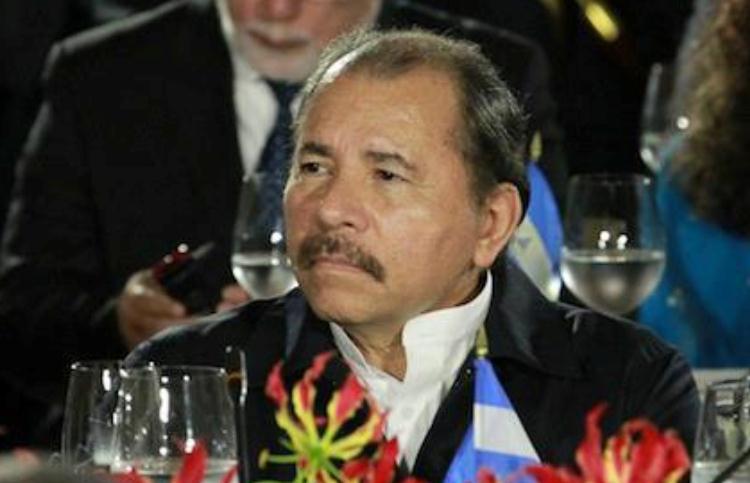The Diplomat
Spanish Congress yesterday urged the Government to promote the imposition of sanctions against the leaders of Nicaragua in the European Union, with a view to increasing pressure and restoring freedoms in the Central American country, where in recent weeks numerous opponents, journalists and activists have been arrested.
The request is the result of a non-legislative proposal presented in the Foreign Affairs Committee of the Lower House, which was agreed by PP, Vox and PSOE, based on initial texts formulated by the first two parties, reports Europa Press.
Finally, the proposal was endorsed by 28 votes in favour and seven against, including those of Unidas Podemos, a partner of Pedro Sánchez’s government. The purple party has once again distanced itself from the Socialists on a foreign policy issue. In recent days, the government has on several occasions expressed its rejection of the policy of arrests and threats carried out by Daniel Ortega’s regime.
The approved text expressly asks the government to condemn “the latest attacks by the Nicaraguan government against opposition political and social actors and independent media” and to promote “all necessary political and diplomatic actions in defence of freedoms and human rights in Nicaragua”.
The executive should also “demand the immediate release of all political prisoners and human rights defenders” and demand that the elections scheduled for 7 November “guarantee all the rights of the opposition and the transparency of the process with measures such as the independence of the Electoral Council and the presence of independent observers”.
Finally, MEPs call on the government to promote and lead “in European institutions the approval of sanctions against government leaders to increase international pressure and help re-establish the rule of law and freedoms in Nicaragua”.
During her speech, the PP spokesperson, Belén Hoyo, lashed out against Daniel Ortega’s “dictatorial regime” and criticised the Nicaraguan government’s criticism of the Foreign Affairs Minister, Arancha González Laya, in recent days. “I will not be the one to defend the minister”, he said, stressing her “disastrous management”, but he maintained that “an attack like this should not be allowed”.
He also accused Ortega of “a new coup d’état” for his latest actions in the area of human rights and which limit the right of Nicaraguans to elect and be elected, stressing that “even traditional allies such as Mexico and Argentina are turning their backs on him”.
For his part, the spokesperson for Vox, José María Sánchez, also referred to the “dictatorial and totalitarian” nature of the Ortega regime, while expressing his “surprise” at the PSOE’s support for his initiative since, he said, some of the laws approved in recent months in Nicaragua seem to have a “curious coincidence” with some of those proposed by the coalition government.
In this sense, the spokesperson for the Socialists, Gemma Araujo, said she did not understand the surprise of PP and Vox at the PSOE’s support for the condemnation of the situation in Nicaragua. “It seems that they were expecting us not to support something that has to do with human rights,” she said.
Araujo regretted the “parallelism” drawn by the Vox deputy and claimed that the PSOE has been denouncing Ortega’s “authoritarian drift” for years, and the President of the Government himself, Pedro Sánchez, expressly asked the Nicaraguan leader for the release of the detained opponents.
Cuba and Colombia
The Foreign Affairs Committee also approved two non-legislative proposals on the lifting of the embargo on Cuba and on support for the peace process in Colombia.
The first, presented by the parliamentary groups Confederal Unidas Podemos, Republican, Plural, Basque and EH Bildu, received 21 votes in favour, fourteen against – including those of PP and Vox – and one abstention.
In the proposal, the government is urged to take “the necessary steps so that, in its relations with the government of the United States of America, it encourages it to effectively carry out the lifting of the economic, financial and commercial blockade of Cuba and to repeal the Helms-Burton and Torricelli laws as soon as possible”.
The proposal on Colombia was presented by the Confederal Parliamentary Group of Unidas Podemos, Republicano, EH Bildu and Plural, and was passed with 20 votes in favour, fourteen against and one abstention.
Among other things, it urges the government to support the Peace Agreement in Colombia as well as the Comprehensive System of Truth, Justice, Reparation and Guarantee of Non-Repetition (SVJRNR), as well as supporting “the work carried out by human rights defenders and social leaders in Colombia”.
It is also asked to “convey to the Government of Colombia the importance of respect for the independence of justice, a pillar of the rule of law, and to encourage the country’s judicial institutions to carry out the necessary investigations to identify, try and punish those responsible for the material and intellectual crimes committed against human rights defenders, social leaders and ex-combatants of the FARC-EP”.
In addition, the Foreign Affairs Committee expresses “its concern for the serious acts of violence that have occurred in recent days as a result of the tax reform promoted by the Government and which have caused numerous victims, from the recognition of the right to peaceful protest and the need to investigate the serious violations of human rights that have been committed in the repression of its free exercise”.






